
The completion of John Zorn's second trilogy of albums performed by the extraordinarily masterful acoustic guitar trio of Bill Frisell, Gyan Riley and Julian Lage, here performing six intricate and lyrically graceful compositions dedicated to literary visionary Samuel Beckett; uniquely packaged in a clear imprinted sleeve.
In Stock
Quantity in Basket: None
Log In to use our Wish List
Shipping Weight: 3.00 units
EU & UK Customers:
Discogs.com can handle your VAT payments
So please order through Discogs
Sample The Album:
John Zorn-composer
Bill Frisell-guitar
Gyan Riley-guitar
Julian Lage-guitar
Click an artist name above to see in-stock items for that artist.
UPC: 702397930426
Label: Tzadik
Catalog ID: CD-TZA-9304
Squidco Product Code: 34064
Format: CD
Condition: New
Released: 2023
Country: USA
Recorded at EastSide Sound, in New York City, on May 23rd and 24th, 2023, by Marc Urselli.
"A new release by the all-star guitar trio of Frisell-Lage-Riley is always a cause for celebration and this sixth volume in their transcendent legacy completes Zorn's second trilogy of CDs with a beautiful and intricate suite of music dedicated to one of the 20th century's greatest literary visionaries-Samuel Beckett. Performing this gorgeous book of music with a soulful sensitivity, these three master musicians weave musical magic in this stunning collection of acoustic guitar music. Zorn's most intimate and ethereal ensemble at its very best! Bill Frisell, Julian Lage, Gyan Riley"-Tzadik
Artist Biographies
• Show Bio for John Zorn "John Zorn (born September 2, 1953) is an American composer, arranger, producer, saxophonist, and multi-instrumentalist with hundreds of album credits as performer, composer, and producer across a variety of genres including jazz, rock, hardcore, classical, surf, metal, klezmer, soundtrack, ambient, and improvised music. He incorporates diverse styles in his compositions which he identifies as avant-garde or experimental. Zorn was described by Down Beat as "one of our most important composers". Zorn established himself within the New York City downtown music movement in the mid-1970s performing with musicians across the sonic spectrum and developing experimental methods of composing new music. After releasing albums on several independent US and European labels, Zorn signed with Elektra Nonesuch and received wide acclaim with the release of The Big Gundown, an album reworking the compositions of Ennio Morricone. He attracted further attention worldwide with the release of Spillane in 1987, and Naked City in 1989. After spending almost a decade travelling between Japan and the US he made New York his permanent base and established his own record label, Tzadik, in the mid-1990s. Tzadik enabled Zorn to maintain independence from the mainstream music industry and ensured the continued availability of his growing catalog of recordings, allowing him to prolifically record and release new material, issuing several new albums each year, as well as promoting the work of many other musicians. Zorn has led the hardcore bands Naked City and Painkiller, the klezmer/free jazz-influenced quartet Masada, composed over 600 pieces as part of the Masada Songbooks that have been performed by an array of groups, composed concert music for classical ensembles and orchestras, and produced music for opera, sound installations, film and documentary. Zorn has undertaken many tours of Europe, Asia, and the Middle East, often performing at festivals with many other musicians and ensembles that perform his diverse output. Zorn's compositions cross many genres and he has stated "All the various styles are organically connected to one another. I'm an additive person-the entire storehouse of my knowledge informs everything I do. People are so obsessed with the surface that they can't see the connections, but they are there." For Zorn "Composing is more than just imagining music-it's knowing how to communicate it to musicians. And you don't give an improviser music that's completely written out, or ask a classical musician to improvise. I'm interested in speaking to musicians in their own languages, on their own terms, and in bringing out the best in what they do. To challenge them and excite them." " ^ Hide Bio for John Zorn • Show Bio for Bill Frisell "Born in Baltimore, Bill Frisell played clarinet throughout his childhood in Denver, Colorado. His interest in guitar began with his exposure to pop music on the radio. Soon, the Chicago Blues became a passion through the work of Otis Rush, B.B. King, Paul Butterfield and Buddy Guy. In high school, he played in bands covering pop and soul classics, James Brown and other dance material. Later, Bill studied music at the University of Northern Colorado before attending Berklee College of Music in Boston where he studied with John Damian, Herb Pomeroy and Michael Gibbs. In 1978, Frisell moved for a year to Belgium where he concentrated on writing music. In this period, he toured with Michael Gibbs and first recorded with German bassist Eberhard Weber. Bill moved to the New York City area in 1979 and stayed until 1989. He now lives in Seattle. "When I was 16, I was listening to a lot of surfing music, a lot of English rock. Then I saw Wes Montgomery and somehow that kind of turned me around. Later, Jim Hall made a big impression on me and I took some lessons with him. I suppose I play the kind of harmonic things Jim would play but with a sound that comes from Jimi Hendrix", Frisell told Wire. Bill also lists Paul Motian, Thelonious Monk, Aaron Copland, Bob Dylan, Miles Davis and his teacher, Dale Bruning, as musical influences. Bill recorded his first two albums as a leader on ECM, both produced by Manfred Eicher. Subdued and lyrical in nature, In Line, the first of the ECM recordings, employed both electric and acoustic guitars in a series of solos (including some overdubbing) and duets with bassist Arild Andersen. Second was Rambler, featuring Kenny Wheeler, Bob Stewart, Jerome Harris and Paul Motian. About Rambler, Fanfare said: "Bill Frisell has built a little masterpiece here - not just a showcase for his own instrumental creativity (of which there is much in evidence), but a clever and poetic whole." Frisell's third album and last for ECM, Lookout For Hope, marked the recording debut of The Bill Frisell Band featuring Hank Roberts, Kermit Driscoll and Joey Baron. Produced by Lee Townsend, the album's diverse material - ranging from country swing to reggae, quasi-heavy metal and backbeat rock with a twist to Monk's "Hackensack" - nevertheless possessed the cohesive and unmistakable personality of a working band on to a sound of its own. High Fidelity called it "the fullest showing of Frisell's ability to date, especially his compositional range." The Chicago Tribune said, "Lookout For Hope offers one of the most hopeful signs that contemporary jazz can evolve with dignity, wit and charm." Before We Were Born, Frisell's debut recording for Nonesuch, featured three musical settings: Peter Scherer and Arto Lindsay produced, co-arranged and performed on three Frisell compositions. "Some Song and Dance", produced by Lee Townsend, is a suite of four pieces performed by Frisell's Band with a saxophone section featuring Julius Hemphill, Billy Drewes and Doug Wieselman. Frisell's "Hard Plains Drifter" is an extended work shaped, produced and arranged by John Zorn and played by the Frisell Band. The New York Times observed: "By following through on the implications of his unfettered sounds, Mr. Frisell has made his best album." Frisell's second Nonesuch album, Is That You?, features nine original Frisell compositions, one by producer Wayne Horvitz and two cover tunes - "Chain of Fools" and "Days of Wine and Roses". With Frisell playing guitars, bass, banjo, ukulele and even clarinet, Is That You? demonstrated with great clarity his pan-stylistic, yet strangely unified musical world. Musician called the album "a very personal vision, tearing down stylistic barriers with delicacy and sudden bursts of emotion." Frisell's third album for Nonesuch, Where in the World?, also produced by Wayne Horvitz, was the band's final recording with cellist Hank Roberts. The Philadelphia Inquirer said: "There is nothing standard about Where in the World?...Frisell is not only a master of an unusual guitar-based sonic tapestry, he's one of the few composers capable of writing for an interactive ensemble." Have a Little Faith, Frisell's 1992 Nonesuch recording, was something of a tribute album. Here, he interpreted the music of a number of American composers whose music had inspired him - Aaron Copland, Muddy Waters, Bob Dylan, John Hiatt, Sonny Rollins, Stephen Foster, Charles Ives, Victor Young, Madonna and John Philip Sousa. The extent to which Bill has made this music his own demonstrates the completeness of its link to his own compositional approach. For this recording Frisell's Band was augmented by Don Byron (clarinet, bass clarinet) and Guy Klucevsek (accordion) and produced by Wayne Horvitz. The San Francisco Bay Guardian said, "Frisell treats each piece with typical earnestness and lyricism, breaking into wrenching distortion and stormy group improv only after breathing the original full of a softly glowing life." This Land, Frisell's fifth Nonesuch recording, consists of all original material with the band and a horn section of Don Byron (clarinets), Billy Drewes (alto saxophone) and Curtis Fowlkes (trombone). Produced by Lee Townsend, the album readily displays the connection between Frisell's own writing and the composers' work to whom he pays tribute on his previous Have a Little Faith. From the standpoint of synthesizing his celebrated composing and arranging talents with exuberant improvising and spirited band interaction, it is a landmark recording, which prompted this description in Rolling Stone: "Strange meetings of the mysterious and the earthy, the melancholy and the giddy, make perfect sense by Frisell's deliciously warped way of thinking. The warpage is catching on and not a moment too soon." In 1994, Frisell recorded a pair of recordings of music that he composed for three silent Buster Keaton films - The High Sign, One Week and Go West. The band premiered this music along with the films to a spirited and sold-out audience at St. Ann's in Brooklyn in May '93. The pairing displayed a natural affinity between work of both artists. Their works together possess an undeniable sense of adventure and penchant for the unexpected that only enhances the warmth and humanity of both the musical elements and the films themselves. It has proven to be the rare case where the whole truly transcends the sum of its parts. Of the "Go West" recording , Billboard noted: "With this set of music for the classic Buster Keaton film, "Go West," Bill Frisell has crafted one of his finest, most evocative albums. Evincing his best qualities as both guitarist and composer, he harvests melancholy Americana from deceptively modest, episodic themes. Coloring the scenes with acoustic as well as his trademark electric, Frisell produces strangely cinematic motifs on guitar, and his rhythm cohorts - longtime bassist Kermit Driscoll and drummer Joey Baron - provide abundant narrative drive." Both albums were produced by Lee Townsend. Frisell's success with the Keaton films has led him to other film-related projects. He scored the music for Gary Larson's "Tales From the Far Side" animated television special and Daniele Luchetti's Italian feature film, "La Scuola." Some of the music from these projects has been adapted and recorded by Frisell on Quartet, Frisell's Nonesuch recording released in April '96. The formation of the Quartet, with Ron Miles (trumpet), Eyvind Kang (violin) and Curtis Fowlkes (trombone), was a new working band for Frisell, who had worked with the telepathic rhythm combination of Kermit Driscoll and Joey Baron for nearly ten years. Frisell told Down Beat: "It's so different from the traditional guitar-bass-drum thing, even though Joey Baron, Kermit Driscoll and I never played like a typical jazz trio. This group, with violin and brass, can play an orchestral range of sounds. It's gigantic. It's given me a chance to write and arrange in an even bigger way." Quartet, was quickly hailed by critics. The New York Times declared: "Quartet may be his masterpiece." Nonesuch released Nashville in April of 1997. Recorded in Nashville and produced by Wayne Horvitz with members of Allison Krauss' Union Station band - mandolin player Adam Steffey and banjo player Ron Block - the project also features her brother and Lyle Lovett's bass player Viktor Krauss, dobro great Jerry Douglas, vocalist Robin Holcomb and Pat Bergeson on harmonica. "Comprising acoustic instrumental folk tunes with unpredictable stylistic accents, Nashville boasts a dreamy, seductive grandeur. The backing mandolin/dobro/bass interplay simmers - Frisell himself picks and strings and most of all floats, laying out liquid tones that settle over the melodies like heat haze on a swampy, swimmerless lake." wrote the LA Weekly. The Atlanta Journal-Constitution summed it up simply as, "Frisell's nod to Nashville is Americana at its best." In January of 1998 Frisell's next project Gone, Just Like A Train came out. On this exceptionally melodic and rhythmically vital instrumental collection of original compositions, Frisell is joined by Viktor Krauss and by Jim Keltner, all star drummer of choice for Bob Dylan, Ry Cooder, T-Bone Burnett, George Harrison, John Lennon and The Traveling Wilburys. The Rocket in Seattle wrote that "Frisell has managed to pull together an ad hoc super trio of musicians from drastically different pasts, and they manage to assemble a machine of colossal proportions: part skewered jazz, part roadside folk blues, part gritty rock..Gone presents Frisell at a creative apex. He's integrated a thoroughly unique understanding of so much American Music. And it's all gift-wrapped in a lean, unimposing trio framework that conveys sheer genius in a million directions. It flies with shining power." Produced by Lee Townsend, the album proved to be one of Frisell's most celebrated and popular to date. Good Dog, Happy Man, brims full of Frisell's shimmering original compositions. Here he is reunited with the Gone Just Like a Train rhythm section of Viktor Krauss on bass and Jim Keltner on drums and joined by Wayne Horvitz on Hammond B3 organ, multi-instrumentalist/slide guitarist Greg Leisz (known for his work with Joni Mitchell, K.D. Lang, Emmy Lou Harris, Beck and Jimmie Dale Gilmore, among others) plus special guest Ry Cooder on the traditional folk song "Shenendoah". Produced by Lee Townsend, Good Dog, Happy Man celebrates Frisell's emergence as a composer who has created a genre unto himself. The Philadelphia Inquirer wrote: "The 12 breathtakingly beautiful originals on Good Dog, Happy Man resist every obvious classification. Frisell's been doing the undefinable for years - creating revelatory music from threadbare accompaniment; finding vital contexts for jazz improvisation that are worlds away from bebop; burying shiny nuggets of melody beneath a gauzy lace-like surface. Frisell manages to evoke big worlds with stark single notes and foreboding sustained tones, conjuring a richly textured atmosphere that is both understated and undeniable. No matter what you call it." " ^ Hide Bio for Bill Frisell • Show Bio for Gyan Riley "Gyan Riley (born 1977) is an American guitarist and composer. He is a son of minimalist composer Terry Riley. They frequently collaborate, including a tour in Europe in September 2016. Gyan Riley studied at San Francisco Conservatory of Music. He released his solo album Stream of Gratitude in 2013 on John Zorn's Tzadik Records. He also performed with Zakir Hussain, Dawn Upshaw, San Francisco Symphony among others. In 2015, he released Nayive Eviyan, a collaboration with Czech violinist Iva Bittová." ^ Hide Bio for Gyan Riley • Show Bio for Julian Lage "Julian Lage (born December 25, 1987) is an American jazz guitarist and composer. A child prodigy, Lage was the subject of the 1997 documentary Jules at Eight. At 13, Lage performed at the 2000 Grammy Awards. At 15, Lage became a faculty member at the Stanford Jazz Workshop at Stanford University. Classically trained at the San Francisco Conservatory of Music, Lage has studied at Sonoma State University and the Ali Akbar College of Music. He graduated from the Berklee College of Music in 2008. On March 24, 2009 Lage released his debut album Sounding Point on EmArcy Records, to favorable reviews. It was nominated for the 2010 Grammy Award Best Contemporary Jazz Album. Lage's second album, titled Gladwell was released April 26, 2011, to positive reviews. On March 2, 2015, Lage released his first solo acoustic album entitled World's Fair. On March 11, 2016, Lage released his fourth album as a leader, entitled Arclight. As of 2017, Lage's trio features bassist Scott Colley and drummer Kenny Wollesen. Lage also has duo projects with guitarists Chris Eldridge and Nels Cline." ^ Hide Bio for Julian Lage
1/17/2025
Have a better biography or biography source? Please Contact Us so that we can update this biography.
1/17/2025
Have a better biography or biography source? Please Contact Us so that we can update this biography.
1/17/2025
Have a better biography or biography source? Please Contact Us so that we can update this biography.
1/17/2025
Have a better biography or biography source? Please Contact Us so that we can update this biography.
Track Listing:
1. Stirrings, Still 6:08
2. The Calmative 7:13
3. The Unnamable 10:24
4. Eleuthéria 7:06
5. The Dream Paradox 7:58
6. Endgame 3:33
Tzadik
Compositional Forms
Guitarists, &c.
Trio Recordings
NY Downtown & Metropolitan Jazz/Improv
Zorn. John
New in Compositional Music
Search for other titles on the label:
Tzadik.


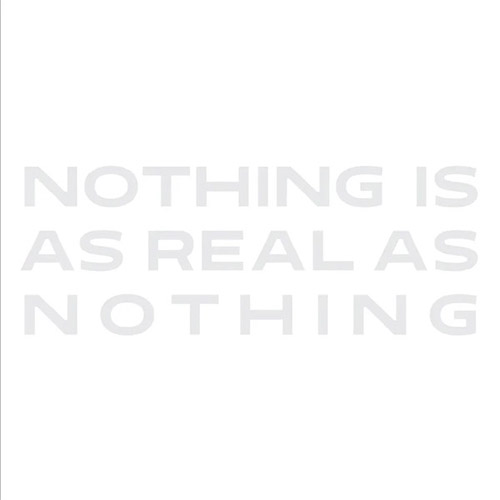

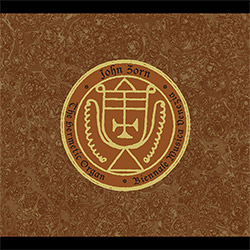
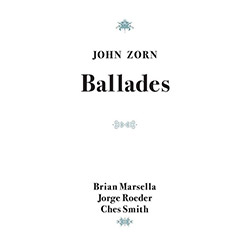


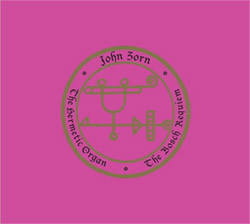
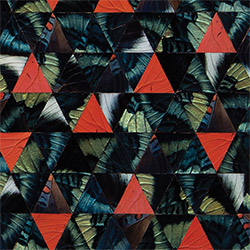
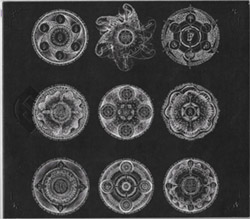
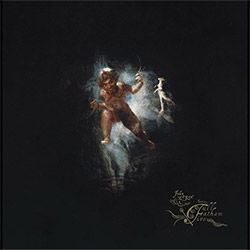
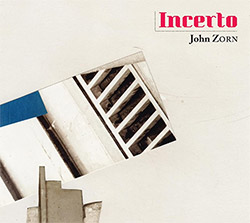
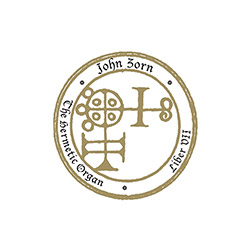

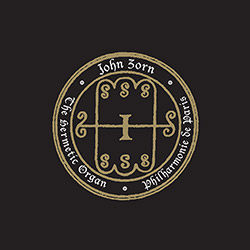
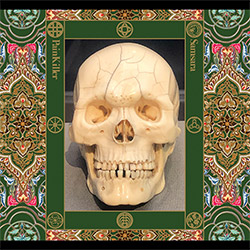
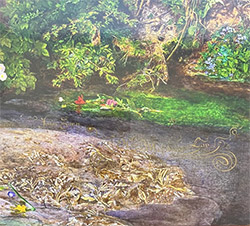


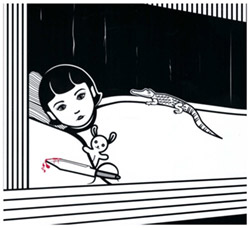

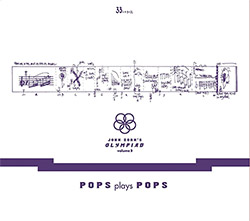
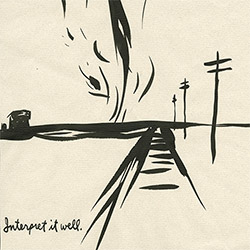
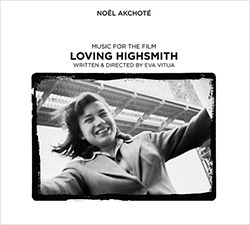
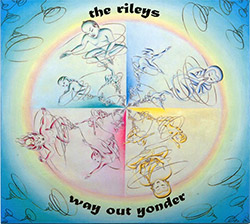
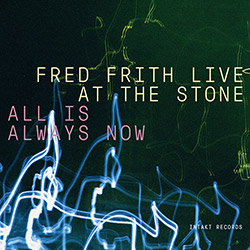
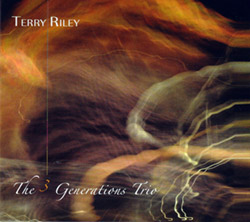



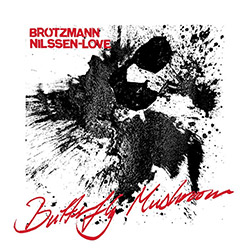
![Brotzmann, Peter / Paal Nilssen-Love: Butterfly Mushroom [VINYL]](https://www.teuthida.com/productImages/misc4/35541.jpg)
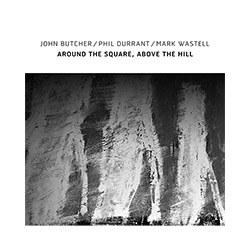
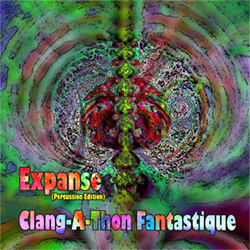
![Allen, Clifford: Singularity Codex: Matthew Shipp On Rogueart [BOOK]](https://www.teuthida.com/productImages/misc4/33454.jpg)


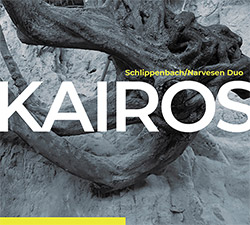

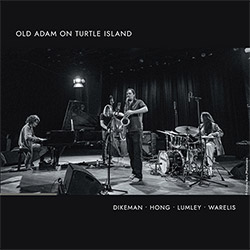
![Sun Ra: Lanquidity (DELUXE EDITION) [VINYL]](https://www.teuthida.com/productImages/misc4/35234.jpg)
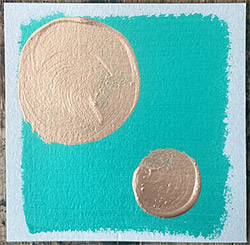
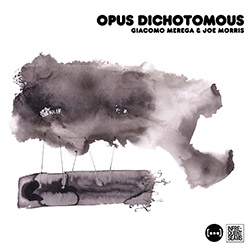
![Sun & Rain (Morgan / Laplante / Smiley / Nazary): Waterfall [VINYL]](https://www.teuthida.com/productImages/misc4/35604.jpg)
![Centazzo, Andrea: Ictus@45 - Out Off Nights [4 CD BOX SET]](https://www.teuthida.com/productImages/misc4/35611.jpg)
![Kaucic, Zlatko (Kaucic / Amado / Dorner / Grom / Guy / Fernandez / Snekkestad): INKLINGS [4 CD BOX SET]](https://www.teuthida.com/productImages/misc4/35614.jpg)
![Fernandez, Agusti feat. Barry Guy, Don Malfon, John Butcher, Jordina Milla, Liudas Mockunas, Lucia Martinez, Torben Snekkestad, Zlatko Kaucic: Agusti Fernandez @70 - Aesthetic Of Prisms. [7 CDs]](https://www.teuthida.com/productImages/misc4/35617.jpg)
![Sarian, Michael / Matthew Putman / Ledian Mola / Federico Ughi: The Sea, The Space, and Egypt, Vol. 1 [VINYL]](https://www.teuthida.com/productImages/misc4/35463.jpg)
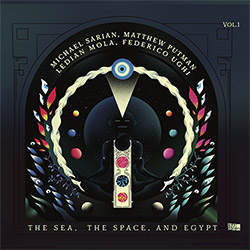
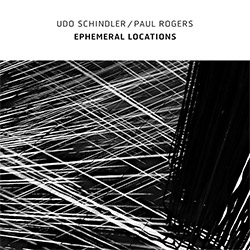
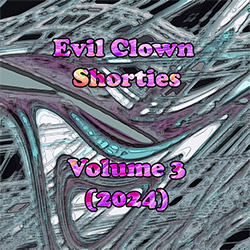



![Berne, Tim (w/ Tom Rainey / Gregg Belisle-Chi): Yikes Too [2 CDs]](https://www.teuthida.com/productImages/misc4/35601.jpg)
![Berne, Tim (w/ Rainey / Belisle-Chi): Yikes [VINYL]](https://www.teuthida.com/productImages/misc4/35602.jpg)

![Butcher / Davies / Sanders / Thomas: Unlockings [VINYL]](https://www.teuthida.com/productImages/misc4/35002.jpg)
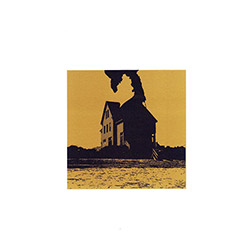
![Brulez les meubles (+ Ingrid Laubrock / Marianne Trudel / Jonathan Huard): FOLIO #5 [VINYL]](https://www.teuthida.com/productImages/misc4/35629.jpg)
![Butcher / Davies / Sanders / Thomas: Lower Marsh [VINYL]](https://www.teuthida.com/productImages/misc4/35003.jpg)
![Beins, Burkhard (w/ Dorner / Elieh / Ermke / Neumann / Renkel / Tuerlinckx / Zapparoli): Eight Duos [3 LPs]](https://www.teuthida.com/productImages/misc4/35473.jpg)

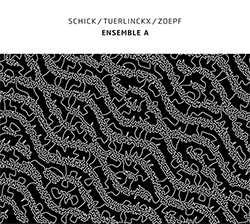
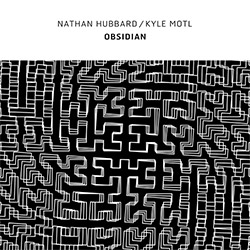
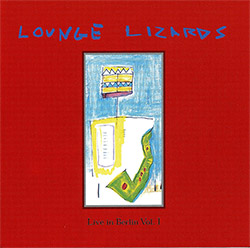
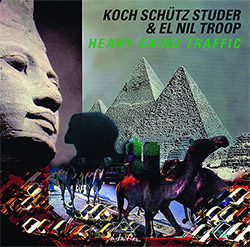

![Taylor, Cecil: The Classic Albums - 8 Remastered LPs [4 CD BOX SET]](https://www.teuthida.com/productImages/misc4/35519.jpg)
![Bang / Duch / Honore / Toop / Wastell: Wunderkammer [VINYL]](https://www.teuthida.com/productImages/misc4/35536.jpg)
![Fagaschinski, Kai / Yan Jun : Graveyard Processions [VINYL w/ DOWNLOAD]](https://www.teuthida.com/productImages/misc4/35474.jpg)
![Brant, Cody / Carl Kruger: Smoke Detail [CASSETTE w/ DOWNLOAD]](https://www.teuthida.com/productImages/misc4/35551.jpg)
![Weirs and Magic Tuber Stringband : The Crozet Tunnel [CASSETTE + DOWNLOAD]](https://www.teuthida.com/productImages/misc4/35570.jpg)
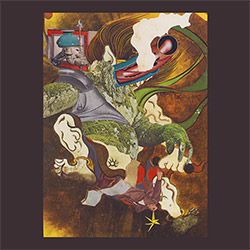
![Abcess Grenk: Erguss Von Licht [CASSETTE w/ DOWNLOAD]](https://www.teuthida.com/productImages/misc4/35560.jpg)

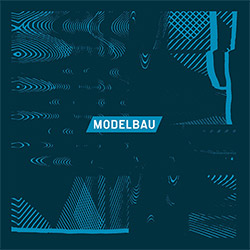
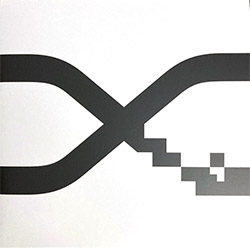
![Alva Noto: Xerrox Vol. 5 [VINYL 2 LPs]](https://www.teuthida.com/productImages/misc4/35359.jpg)
![Weston, Matt: Communism Has Appeared On The Scene [VINYL 2 LPs]](https://www.teuthida.com/productImages/misc4/35546.jpg)

![Jeck, Philip: rpm [2 CDs]](https://www.teuthida.com/productImages/misc4/35455.jpg)






![DNS: Taking Big Bites Of The Khandas Three Cafes Deep [2 CDs]](https://www.teuthida.com/productImages/misc4/35334.jpg)




![Cleaver, Gerald: The Process [VINYL]](https://www.teuthida.com/productImages/misc4/34966.jpg)




![Lonsdale, Eden: Dawnings [2 CDs]](https://www.teuthida.com/productImages/misc4/35480.jpg)







![Sanna, Claudio: Compositori Sardi Contemporanei II [2 CDs]](https://www.teuthida.com/productImages/misc4/35317.jpg)






![Zurria, Manuel: Fame di Vento [3 CDs]](https://www.teuthida.com/productImages/misc4/35167.jpg)

![Granberg, Magnus / Nattens Inbrott / Skogen: Holde Traume, Kehret Wieder! [2 CDs]](https://www.teuthida.com/productImages/misc4/35038.jpg)
![Frey, Jurg: Outermost Melodie [2 CDs]](https://www.teuthida.com/productImages/misc4/35039.jpg)

![Pavone, Jessica: Reverse Bloom [VINYL]](https://www.teuthida.com/productImages/misc4/34895.jpg)




![Modney (Modney / Wooley / Gentile / Roberts / Pluta / Symthe / ...): Ascending Primes [2 CDs]](https://www.teuthida.com/productImages/misc4/34852.jpg)






![Elephant9 : Mythical River [VINYL]](https://www.teuthida.com/productImages/misc4/34624.jpg)



![Elephant9 with Terje Rypdal: Catching Fire [VINYL 2 LPs]](https://www.teuthida.com/productImages/misc4/35355.jpg)
![Deerlady (Obomsawin, Mali / Magdalena Abrego): Greatest Hits [VINYL]](https://www.teuthida.com/productImages/misc4/34876.jpg)




![Haino, Keiji: Black Blues [2 CDs]](https://www.teuthida.com/productImages/misc4/35109.jpg)



![Surplus 1980: Illusion of Consistency [CD]](https://www.teuthida.com/productImages/misc4/35069.jpg)
![Staiano, Moe: Away Towards the Light [VINYL + DOWNLOAD]](https://www.teuthida.com/productImages/misc4/35037.jpg)



![Caveira (Gomes / Sousa / Abras / Ferrandini): Ficar Vivo [VINYL]](https://www.teuthida.com/productImages/misc4/34643.jpg)
![Gregg, J. J. / David Van Auken: Lunar Prairie [CD w/ DOWNLOAD]](https://www.teuthida.com/productImages/misc4/34611.jpg)

![Coultrain: Mundus [VINYL]](https://www.teuthida.com/productImages/misc4/32439.jpg)
![Mattin: Songbook #6 [VINYL]](https://www.teuthida.com/productImages/misc4/27317.jpg)
![Punkappella: Wake Up [7-inch VINYL]](https://www.teuthida.com/productImages/misc4/17519.jpg)
![Residents, The: WARNING: UNiNC.: Live And Experimental Recordings 1971-1972 [VINYL 2 LPs]](https://www.teuthida.com/productImages/misc4/31521.jpg)
![Coley, Byron: Dating Tips for Touring Bands [VINYL]](https://www.teuthida.com/productImages/misc4/17906.jpg)

![Lost Kisses: My Life is Sad & Funny [DVD]](https://www.teuthida.com/productImages/misc4/lostKissesDVD.jpg)